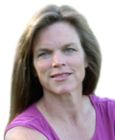Sleep
Want to Do More in 2020? Get Enough Sleep
Recent research explains why sleeping is necessary for health and well-being.
Posted December 31, 2019
What are your goals for this new year and decade? Whatever they are, one essential ingredient of your success is enough sleep.
Do you want to work smarter with greater will power, clearer focus, and enhanced stamina? Get enough sleep.
Do you want to exercise regularly? Lose weight? Eat healthier foods? Get enough sleep.
Do you want to boost your productivity, charge your creativity, take on new challenges? Do you want to be more present, and generally feel more joy, more love, and more peace? Get enough sleep.
It’s not magic. It’s how we humans are made. Sleep is something we cannot live without, and we are finding out the hard way.
According to the Center for Disease Control, 80 million adults in the United States suffer from chronic sleep deprivation (defined as fewer than seven hours of sleep per night). Studies trace slim sleep to car accidents, medical errors, and learning disabilities; to decreased productivity, depression, and psychosis; as well as to heart disease, diabetes, dementia, and even obesity. Without sleep, our prefrontal cortex shrinks, making us moody, irritable, and irrational. In a valiant attempt to fuel our waking state, our stomach and other organs overproduce the hunger hormone ghrelin, making us think we need food to do so. According to Robert Stickgold of Harvard Medical School: “We are now living in a worldwide test of the negative consequences of sleep deprivation," and it is costing us health and happiness.
Just think about the miracle of sleep. There comes a point in the day where you simply can’t do anything. Your mind empties, your eyelids droop and limbs drop, heavy with their own weight. Will, motivation, and desire dry up. You want to sleep. And when you do, provided you get enough, you wake up a whole new person. Awake! Refreshed! Light! Agile! Able to do and be and go some more.
According to Steven Lockley of Brigham and Women’s Hospital in Boston: “Sleep may be more essential to us than food; animals will die of sleep deprivation before starvation.”
So what happens when we sleep?
For one, sleep is not just about rest. While parts of ourselves—our sensory awareness, voluntary muscles, and conscious thought—do "sleep," other parts of our selves stay awake, and even come to life. Not only does our heart beat, lungs breathe, and blood flow, but across five stages of sleep, our bodily self recreates itself, in an ongoing rhythm of bodily becoming. Sleep is that arc in the rhythm where a bodily self pulls its mind back into itself, reconnecting the branches of our wide-ranging awareness with the enabling roots of our sensory selves.
Each stage of sleep accomplishes a set of tasks to this end. For example, in Stage 1, the neurons in our brain—which, during the day bump and jostle and fire in a frenzied mass—fire rhythmically and evenly, as if smoothing out the turbulence of the day. It is as if the brain runs its engine without strain, to re-establish and reset not only its fundamental patterns but its capacity to sense and respond.
In Stage 2, electric sparks zap the cerebral cortex in bursts called “spindles.” Researchers theorize that these spindles incite memory formation, wiring neurons to one another in particular patterns of sensation and response.
In Stages 3 and 4, neurons shrink. As the space between them expands, spinal fluid flows through, washing out metabolic wastes. As Finkel writes: “These intercellular spaces are dumping grounds" for compounds including the protein fragment beta-amyloid—known for disrupting communication among neurons. Excess amounts of beta-amyloid have been closely linked to Alzheimer’s.
Finally, in REM sleep, we enter a “chemically altered state of consciousness.” In this deep, unresponsive state, cellular protein synthesis peaks, and parts of the brain that generate bodily movements come alive, producing dreams. Here the limbic system rules—the “untamed jungle of the mind,” locus of the sex drive, aggression, and fear, as well as elation, joy, and love. Scientists refer to this REM sleep as the “playtime” of the brain.
In short, sleep is more about reset than rest. Sleep is that moment in the rhythm of bodily becoming where the bodily movements we have created become us. More happens than simply emptying the mental net of information and curating its contents. Memories are movement patterns—to and fro, push and pull, around and around. Memories exist as records of movements made—with our minds, hearts, and bodily selves—that produced effects. During sleep, these patterns of movement integrate into a bodily self, evolving and remaking a bodily self in line with the stresses placed upon it and the opportunities made available to it during the day.
As scientists have confirmed, this remaking occurs at a cellular level: we rebuild muscle and bone, mend skin, replenish energy stores, and heal disease. Yet this process of remaking occurs at the level of movement potentials as well. We wake up with ideas we didn’t have, with health we hadn’t felt, and with desires we were too tired to entertain. We wake up having strengthened the patterns of sensing and responding that relate us to the challenges of our lives in life-enabling ways.
Sleep reconnects us with our sensory selves—with the sources of our freedom and discernment, our compassion and creativity. In so doing, sleep frees us to move in line with the whole-being earth, as the earth creates itself in us and through us.
However, as many of us know, it is not easy to get a good night of sleep, even when we feel exhausted. Researchers point to a range of reasons why sleep in the 21st century is so hard to achieve: first and foremost, electric lights, televisions, computers, and smartphones are sleep interrupters. Their artificial light tricks us into overriding our natural impulse to sleep. We respond as we would respond to the sun, inhibiting the production of melatonin, the hormone that cues our nocturnal turn. Other fingers point at the pace of life and the demands of work and family.
Often, when we feel tired, our response is to resist it. We don’t have time to sleep! So we rely on our lighted devices to prop us up. We clench our muscles to keep us rigidly upright. We pump ourselves with caffeine, sugar, carbohydrates and other blood boosters that help us override the pull of sleep. And we can. However, we do so at our own peril. Sometimes we are so tired that we can’t sleep. We stumble about in a daze, unable to engage the moment fully or let go of it.
How then, can we get the sleep we need? While many experts have many answers, there is no one solution that will work for everyone. What you need to sleep is as individual as the life you lead and the bodily self you are.
Basically, the key, if there is one, is to align yourself with the rhythms of the day, and when it ends, do whatever helps you begin the process of bringing your mind back to your body: feeling what you are feeling and then letting go. If you can begin to release the mental stimulation, muscular tension, and whatever else is pinning you awake, sleep will take over and pull you in.
The only way to figure out what will work for you is to experiment. If it helps to eat, eat. Or not. It if helps to exercise or stretch, move. Or not. If it helps to shower or bathe, do. Or not. The key is to find out what you can do to open to the feeling of your own exhaustion and move with it.
Want to do more in 2020? Do it awake.
When we are awake, our senses crackle. We are more in touch with our bodily selves and more able to discern what is good for us. We are more able to eat what nourishes, move for the joy of it, and ride the bumps of life with good humor and gratitude.
Sometimes we don't sleep or can't sleep or choose not to go to bed. But knowing what helps us sleep and why we should, we can be ready for the opportunity when it arises, to take the ride that will set us back on our feet, willing and able to begin again.
References
Centers for Disease Control, Sleep and Sleep Disorders, https://www.cdc.gov/sleep/index.html, Accessed December 31, 2019.
Finkel, Michael. 2018. “Want to Fall Asleep? Read This Story” National Geographic, August.
Lowry, Richard, Danice K. Eaton, Kathryn Foti, Lela McKnight-Eily, Geraldine Perry, and Deborah A. Galuska. 2012. “Association of Sleep Duration with Obesity among US High School Students,” Journal of Obesity, vol. 2012, Article ID 476914, 9 pages. https://doi.org/10.1155/2012/476914.
Owens, Judith. 2014. Insufficient Sleep in Adolescents and Young Adults: An Update on Causes and Consequences. PEDIATRICS Volume 134, Number 3, September. www.pediatrics.org/cgi/doi/10.1542/peds.2014-1696. Accessed December 31, 2019.




